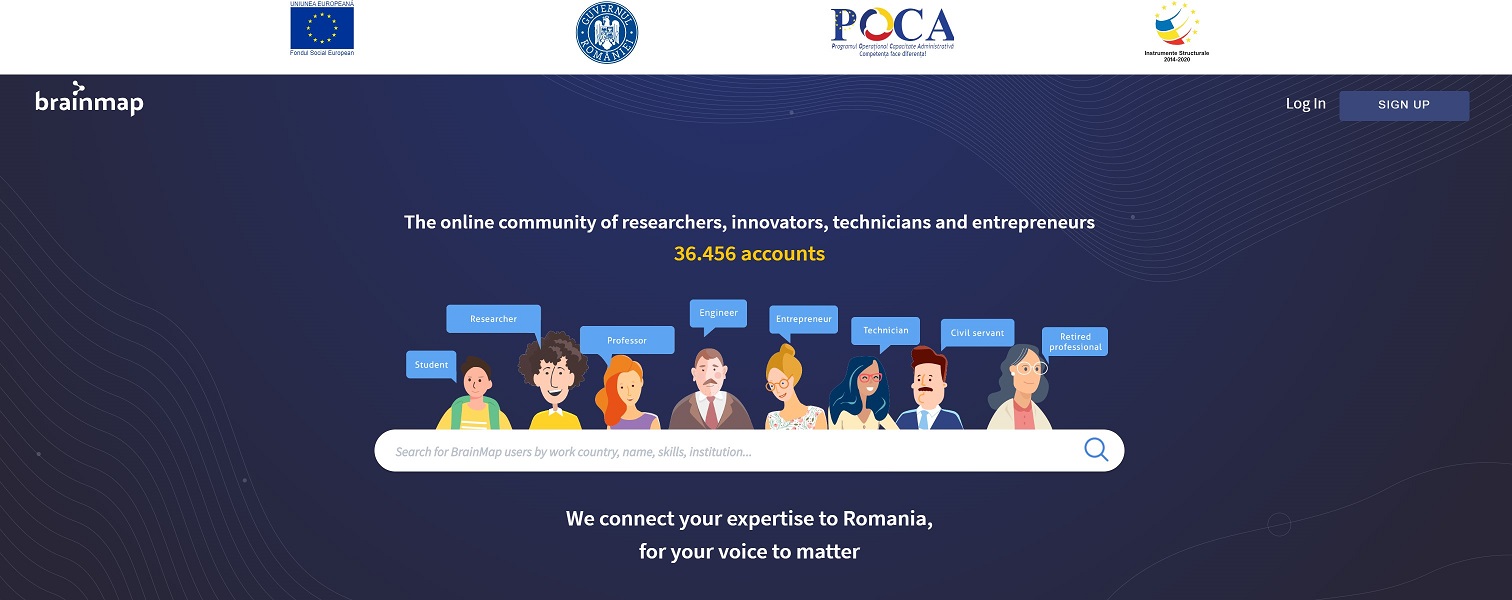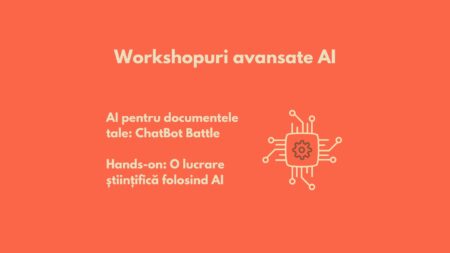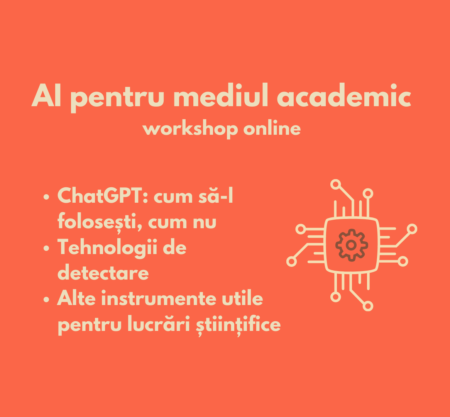I am often asked to recommend an expert from academia to be interviewed for a topical topic. I often managed to do this. However, if I didn't know someone personally or if I didn't know about someone, I didn't have a search tool.
But things have changed. I'm sharing this site that I recently learned about, which allows anyone to search for academic and research experts by one or more keywords.
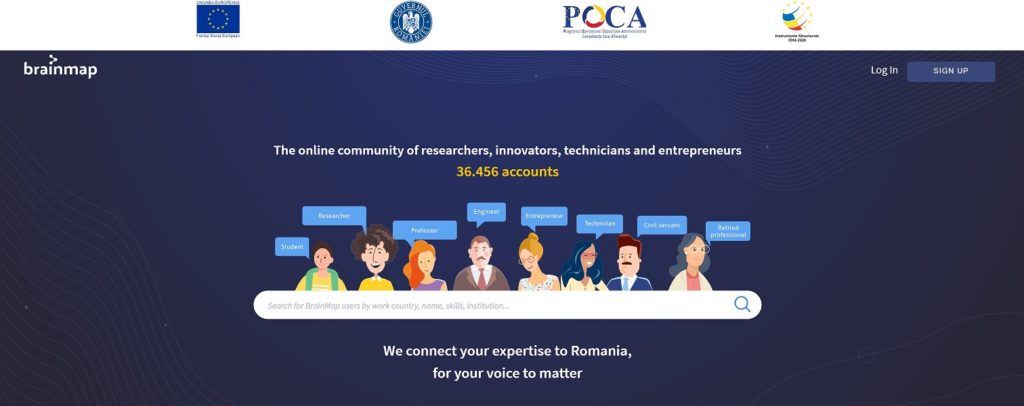
The website is older. I confess I found out about it two years ago and then forgot about it. It is made by the people who manage almost all the research funds in Romania - UEFISCDI (Unitatea Executiva pentru Financiamento Înduțămantului Superior, a Cercetări, Dezvoltării e Inovării).
BrainMap is a kind of Facebook, but with researchers. Perhaps its intention is more to connect experts with each other. Such a tool was needed because even researchers (sometimes even from the same university!) find it hard to find each other. For example, when someone in sociology needs a partner for a physics project, even the two had no formal tool to find each other. But it also happens to be a useful site for journalists, and that's what I want to focus on now.
There are over 36,000 profiles, mostly of professors in higher education or researchers, but not only. Each profile also has a series of "keywords", which represent the person's areas of expertise.
In addition, there is also more technical information, such as: what projects the person is involved in, what articles they have published, whether or not they have patents and whether they are a reviewer in certain fields. As with all sites where there are 'profiles', some are richer in information, others are limited to basic data. But they all have these keywords associated with them, along with the institution where the person works, and this is the most valuable information.
Although anyone makes an account on the platform, you don't need one to search for experts. So how do you identify the right expert?
Step 1: Search by keyword
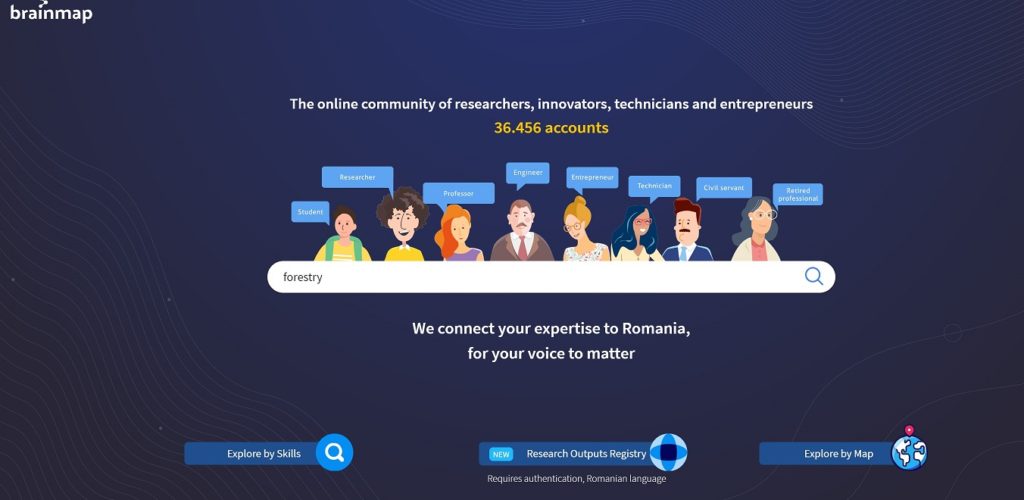
On the first page of the site, enter a keyword. Let's say a journalist wants to research a topic related to forests: he or she can search for "forestry" or "trees" or similar words. Several keyword tests can be done until good results are found.
Step 2: Filter the list of results
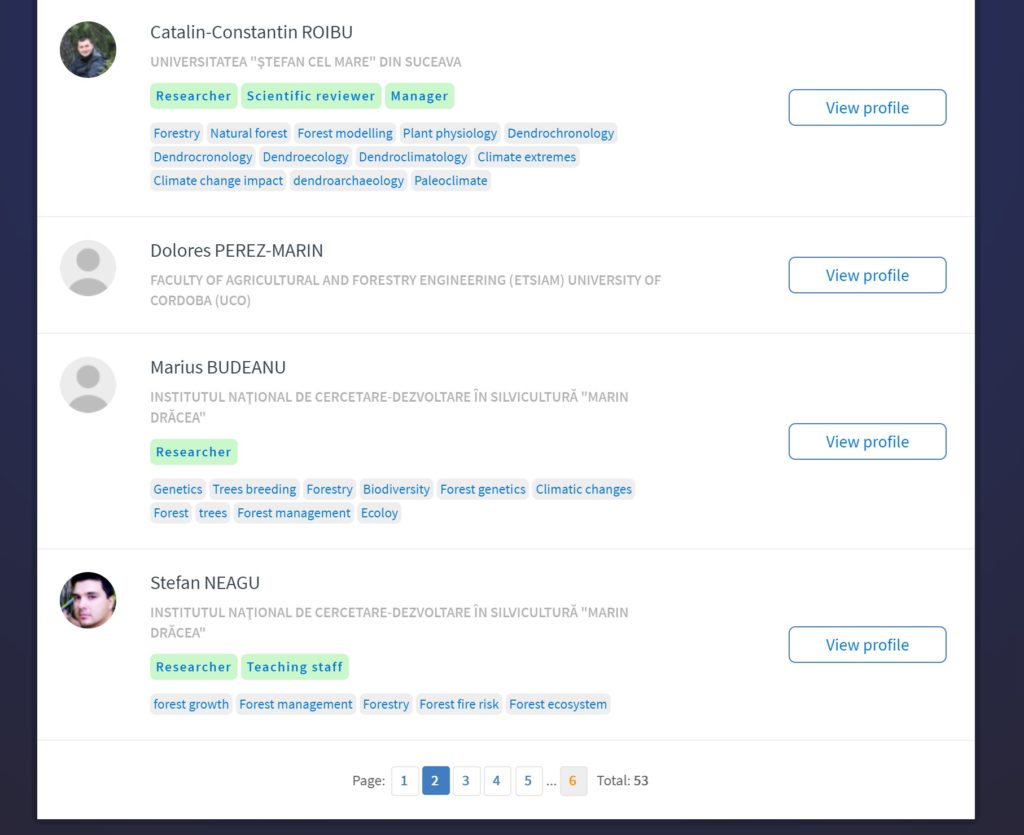
A list of results will appear, to which a filter can be applied: for academia, "researcher" is generally chosen, but it is also possible to search for "entrepreneurs", for example. Each person appearing in the results is also accompanied by those keywords or areas of expertise. Not all experts are suitable for a topic (for example, someone may be an expert on viruses, but in animals, not humans), so only some results will be valid. Also from the list of searches, it is easy to see what city the person is in, as the "affiliation", i.e. place or places of work, is also shown. If the journalist is from Brasov and needs to film an interview, then it is easy to see whether or not an expert can be found in Brasov.
Step 3: Search your profile for contact details
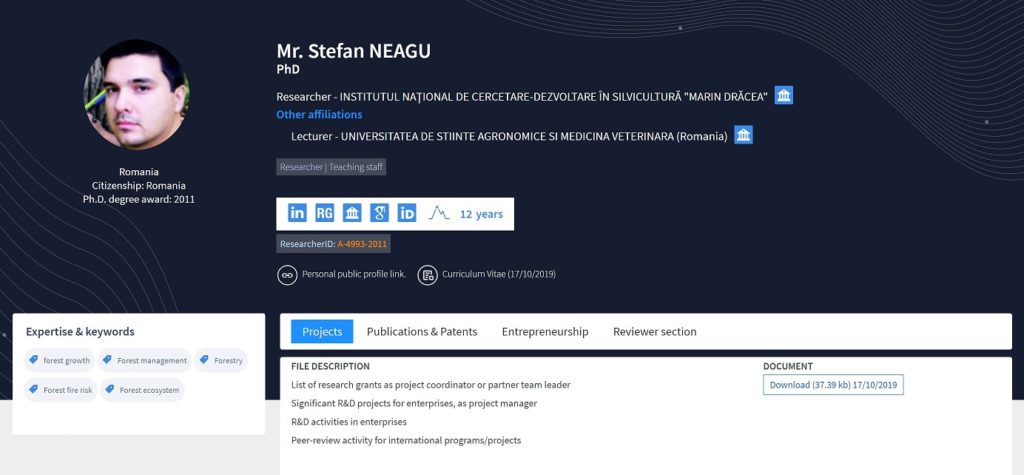
You have to go through each individual profile to see if that person really fits for the desired interview. The page will show the projects they are involved in, possibly whether they have patents etc.
Most will have links to people pages, CVs, LinkedIn, etc.
Not everyone is suitable for an interview. I've written a three-step guide here on how to filter peopleso that we can make sure what they say is correct. For those who have an extra 5-10 minutes for documentation, I recommend doing a few clicks on the site and see if indeed people publish in good journals in that field. It's important to approach the right people, otherwise we risk promoting pseudoscience.
Important: even if no contact details appear, they will be easy to find out later. Once the name of the person and the institution they work for are known, the contact details will be found on the website of the institution, faculty, department, etc.
Bonus: Search for specialists abroad
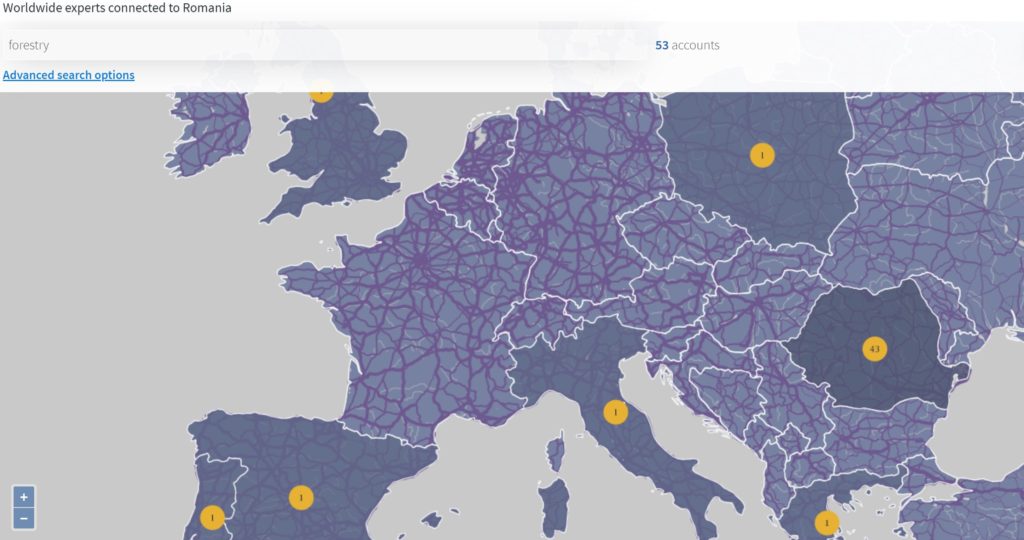
The site also has a geographical search function. It does not have a distribution by cities in Romania (it would have been useful), but foreign experts can be identified and asked for their views.
Popular areas
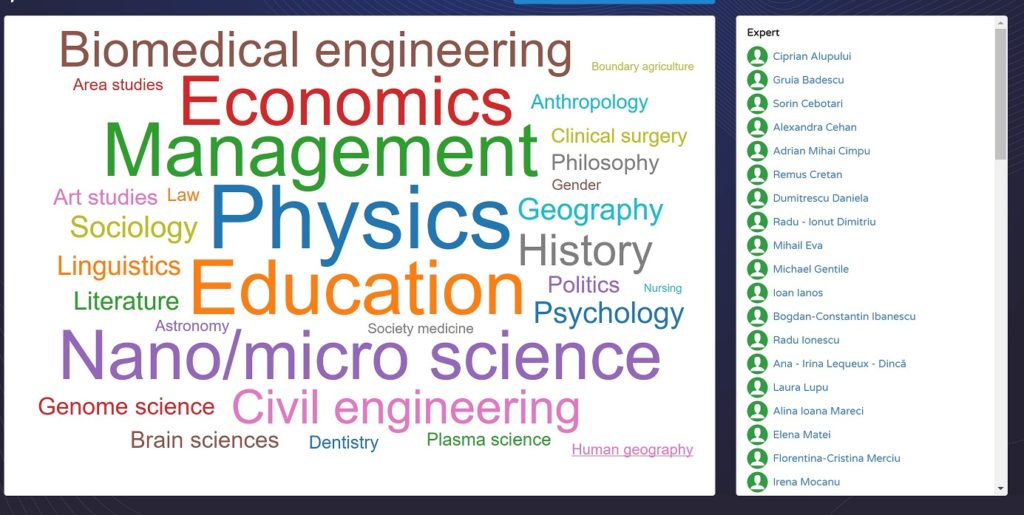
In addition, the site offers another feature: viewing the "most popular" domains in a wordcloud and searching for specialists on a broader domain.
Of course, the researchers you contact may decline the interview, but it is unlikely that they will all decline. That's why this tool is so useful - you can identify more than one interview candidate, people with the same area of expertise, so that you have more more options.
Abroad, just about every university has such a search engine for its researchers. I have also contributed ideas for one at the University "Alexandru Ioan Cuza" in Iasi, I don't know when it will see the light of day, but I'll keep you posted. I don't know of any examples of institutions in Romania that have such "employee directories". If you know of any, let me know at [email protected].
Every month, I send out a newsletter on Science and Research, with articles that talk about how research can be better promoted in Romania. It includes what I write here on the blog, but also recent articles in other languages that I recommend and comment on.
You can subscribe here.
The latest issue is here.


